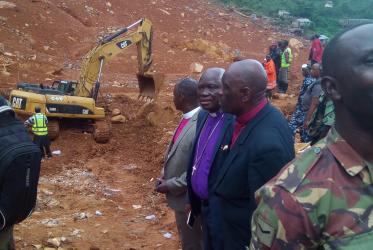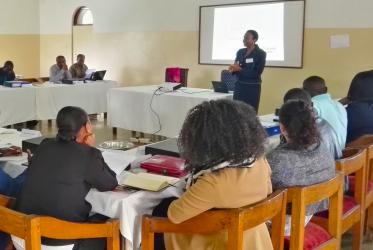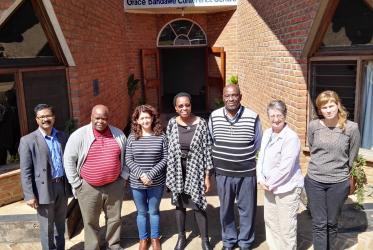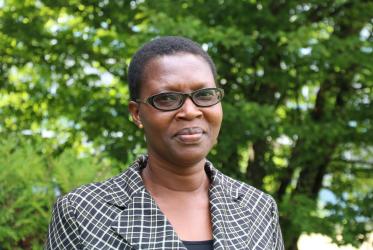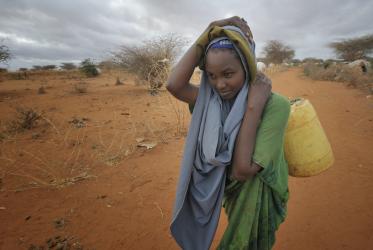Displaying 101 - 120 of 149
New study lifts up voices of small farmers in Mozambique
24 August 2017
African youth takes stand at first ever WCC Eco-School
03 August 2017
A communicator on the move
10 July 2017
G7 must address famine
22 May 2017
Applications open for WCC Eco-School
10 May 2017
